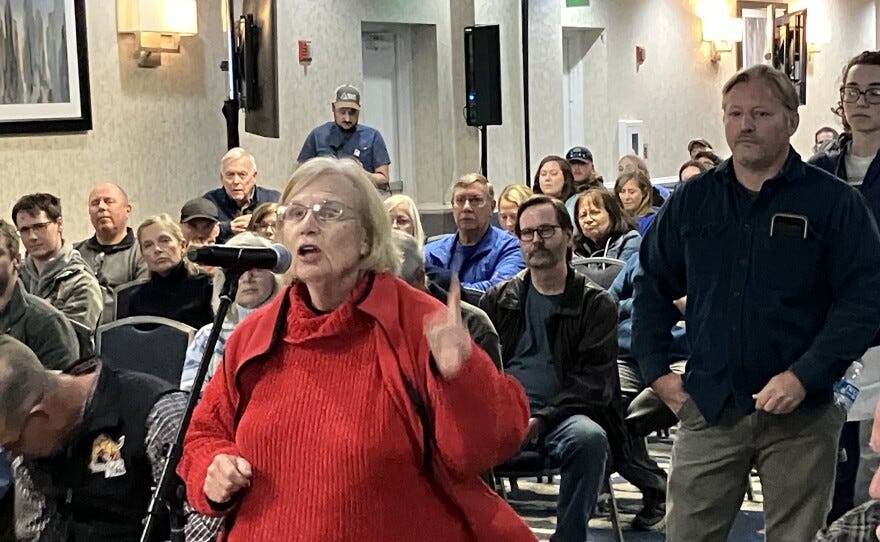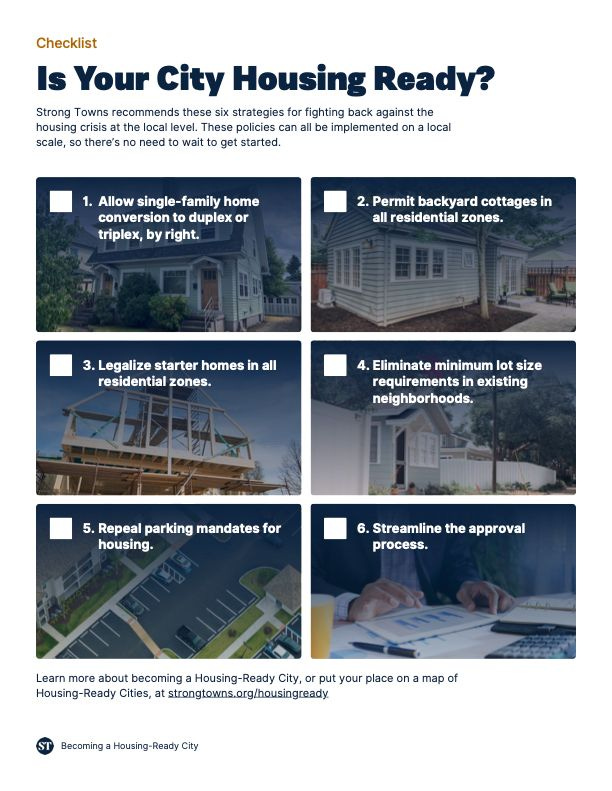Imagine sitting in a planning commission meeting that's stretched well into the evening. The room is tense, filled with vocal opponents to proposed zoning changes that could help address your community's housing crisis. As a commission member, you know the research supports these changes. You understand they're necessary. But when faced with passionate opposition from neighbors, even the most well-informed decision-makers can feel isolated and uncertain.
This scenario plays out in communities across the country, where essential zoning reforms—like allowing duplexes in single-family neighborhoods or eliminating minimum parking requirements—face resistance despite their proven benefits. While these changes are crucial first steps toward creating more affordable, vibrant communities, the path to implementing them isn't just about having the right policy. It's about having the right support system in place.
The Challenge: Beyond the Technical Solutions
The technical aspects of zoning reform are relatively straightforward. Strong Towns just recently created the graphic below, articulating that every community should:
Allow single-family homes to be converted into duplexes or triplexes
Permit backyard cottages in residential areas
Legalize starter homes across residential zones
Remove minimum lot size requirements
Eliminate mandatory parking requirements
Streamline housing approval processes
These changes work just as effectively in small rural towns as they do in major urban centers. However, the real challenge isn't in drafting the ordinance—it's in navigating the political and social dynamics that can make or break these initiatives.
The Missing Piece: Community Alliances
Consider Sarah, a local bank manager and local planning commissioner. She's spent countless hours studying the research and understands the benefits these changes could bring to her community. But when faced with vocal opposition from a small but passionate group of residents, she finds herself in a difficult position. The thirty people protesting at the meeting represent less than 1% of the town's population, but their voices feel overwhelming in the moment.
This is where the power of local alliances becomes transformative. Imagine the shift in energy when ten respected community leaders—from the school superintendent to local pastors, from the fire chief to business owners—stand together in support of these changes. They're not just offering verbal support; they're bringing concrete plans and resources to the table:
Churches ready to develop underused parking lots into needed townhomes, newly enabled if the zoning reforms pass
The school district prepared to sell land for starter homes on small lots, newly enabled if the zoning reforms pass
The community foundation offering financing for accessory dwelling units, newly enabled if the zoning reforms pass
Building Effective Alliances
The most powerful community alliances bring together individuals who carry what I call "legacy trust"—people who have built deep relationships and credibility through years of service and leadership in their community. These might be:
Religious leaders
Long-standing business owners
Public officials
Philanthropic leaders
Respected community volunteers
Their influence comes not just from their titles, but from their demonstrated commitment to the community's well-being over time. When these leaders unite behind zoning reform, they provide crucial political and social support for decision-makers while helping to shift the broader community narrative around housing change.
Moving Forward
Zoning reform isn't everything—but it is an essential first step toward creating more inclusive, affordable communities. The success of these initiatives often depends less on the technical merits of the policy and more on building a strong coalition of support among trusted community leaders.
For those working to advance housing solutions in their own communities, consider this: Who are the respected voices in your community who might join together in support of these changes? How might their unified voice help create the political and social space needed for positive change?
Remember, while the vocal opposition might seem overwhelming in the moment, they rarely represent the full community perspective. By building strong local alliances, we can help ensure that good policy decisions receive the backing they need to move from proposal to reality.
The future of our communities depends not just on making the right choices, but on building the right support systems to help those choices succeed. Through thoughtful coalition-building and the strategic engagement of trusted community leaders, we can create the conditions necessary for meaningful housing reform to take root and flourish.






